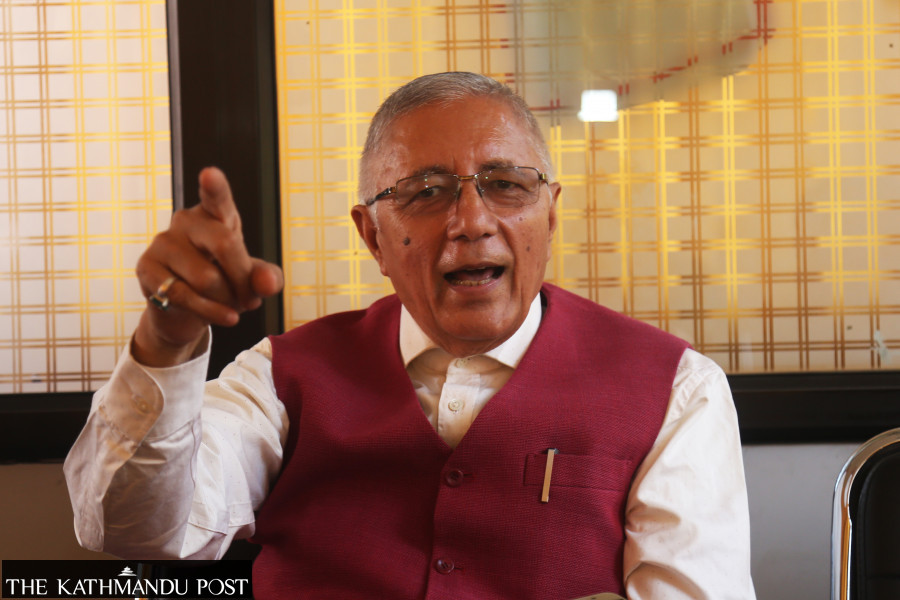Politics
Congress’ rival faction presses Deuba for timely general convention
Shekhar Koirala criticises the government for undermining good governance with poor ministerial selections.
Post Report
More than a year before the scheduled general convention, the dissident faction within the Nepali Congress has started exerting pressure on the leadership for a timely jamboree, as it has a history of not sticking by the party charter for the national gathering.
Addressing the party’s Central Working Committee meeting on Sunday, party leader Shekhar Koirala drew the attention of the establishment faction to ensure the party’s 15th general convention is not delayed.
“I request that the 15th general convention not be prolonged under any pretext. I demand that this Central Committee meeting make a decision ensuring the next general convention is held in December next year,” said Koirala.
The Congress has a history of delaying its general conventions.
As per the party charter, the Congress should hold its periodic general convention every four years. The 13th general convention that elected Sher Bahadur Deuba as party president was held in March 2016. Going by the party statute, the convention must have been held by March 2020. Owing to internal differences and citing the domestic political situation, the party postponed the event by a year and a half. The 14th national convention was held only in December 2021, which reelected Deuba as party president.
The party’s statute allows an extension of the convention by a year, and the Constitution of Nepal also envisions that political parties hold their conventions every five years. Article 269 (4) (b) of the constitution requires a political party to hold its general convention at least once every five years. In special circumstances, the constitution allows postponement of the event for a maximum of six months.
The party leadership made the maximum extension allowed before holding its 14th general convention.
Fearing that Deuba could repeat the history, the Koirala faction wants a formal decision to stick to the party charter’s four-year gap between two conventions. Putting his views in the meeting, Ajaya Babu Shiwakoti, a central committee member, demanded the ongoing meeting come up with a concrete schedule for the next general convention.
Seemingly dissatisfied, party president Deuba, interrupted Koirala, and asserted that the general convention would be held on time and there was no plan to postpone it, according to a leader present in the meeting.
Koirala, who is an aspirant for party presidency, not only wanted assurance for the timely convention but also criticised the performance of the party leadership in his 10-point comments.
“I am not here to analyse the role the Congress played in national politics under your leadership in the last eight years,” he said. “Election results have clearly shown that the party’s base has shrunk. I leave it to history to objectively assess why the Congress fared poorly in earlier elections, and though it is the largest party in parliament now, it is only due to the electoral alliance.”
The Congress came in second after the CPN-UML in the 2017 general election. In the 2022 elections, the party forged an electoral alliance with the CPN (Maoist Centre) and the CPN (Unified Socialist). With 88 seats, the Congress is the largest party in the lower house, though it trailed behind the UML in popular votes.
Koirala used the party meeting as a platform to criticise the performance of the incumbent Congress-UML alliance. “The Congress and the UML have repeatedly promised good governance when forming governments. However, their selection of ministers at the federal level and in provinces has made a mockery of good governance,” he said.
He suggested that the incumbent alliance of the big parties work towards equipping the provinces with the constitutional authority that they have yet to enjoy even nine years after the promulgation of the statute. “The provinces are struggling to prove their relevance in lack of fiscal and administrative federalism. The two major parties must work to resolve the problems facing the provinces,” he said.
Stating that mentioning good governance in party documents is meaningless as long as people don’t feel it, he said, “If our friends in the government cannot win the hearts of people through their works, I see the unexpected downfall of the party in the days to come.”




 13.12°C Kathmandu
13.12°C Kathmandu













